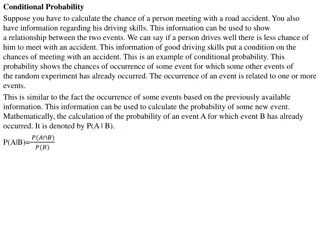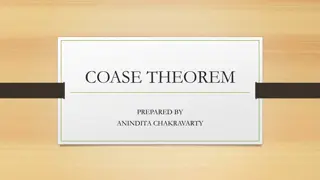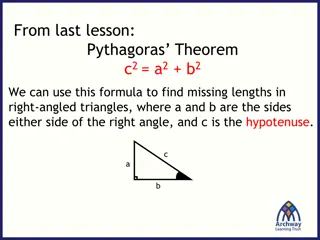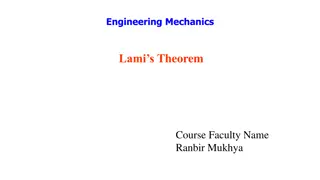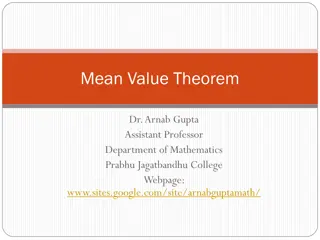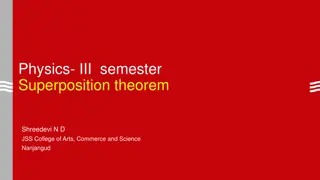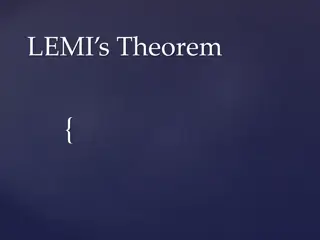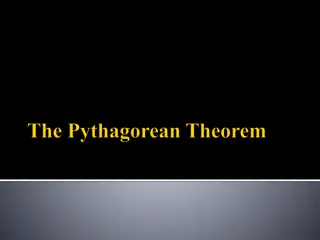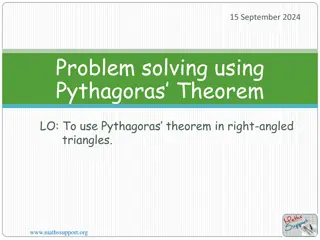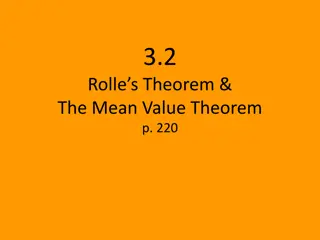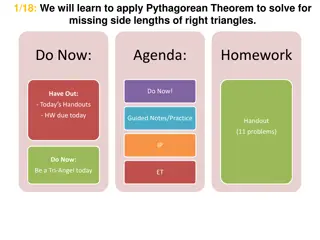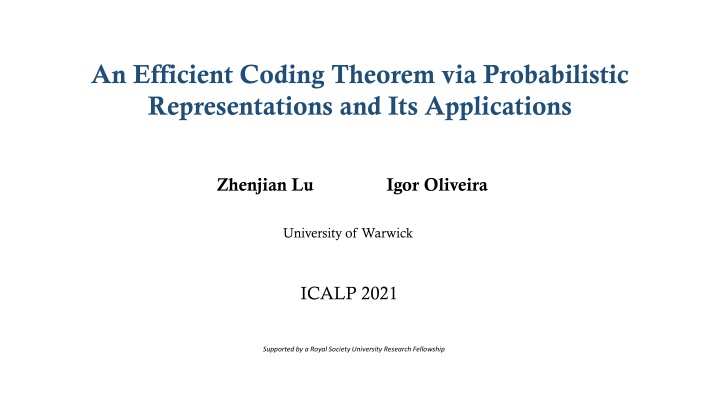
Efficient Coding Theorem via Probabilistic Representations
Explore the Efficient Coding Theorem through Probabilistic Representations and its applications in algorithms and complexity. Discover the pillars of Kolmogorov Complexity and the time-bounded version. Learn about efficiently samplable objects and their short probabilistic representations. Applications include instance-wise search, probabilistic equivalence, and time hierarchy for sampling distributions.
Download Presentation

Please find below an Image/Link to download the presentation.
The content on the website is provided AS IS for your information and personal use only. It may not be sold, licensed, or shared on other websites without obtaining consent from the author. If you encounter any issues during the download, it is possible that the publisher has removed the file from their server.
You are allowed to download the files provided on this website for personal or commercial use, subject to the condition that they are used lawfully. All files are the property of their respective owners.
The content on the website is provided AS IS for your information and personal use only. It may not be sold, licensed, or shared on other websites without obtaining consent from the author.
E N D
Presentation Transcript
An Efficient Coding Theorem via Probabilistic Representations and Its Applications Zhenjian Lu Igor Oliveira University of Warwick ICALP 2021 Supported by a Royal Society University Research Fellowship
Which objects can be compressed? string ? short encoding of ? 01001101 0111010111 010001110 Kolmogorov Complexity: K ? =minimum length of a program that prints ?
In Algorithms and Complexity: We would like to recover objects from their representations in bounded time. Which objects admit short and effective representations?
Time-bounded Kolmogorov complexity [Levin 84] [O 19] A randomized analogue: ?? ? = min . P + log Time P ??? ? = min . P + log Time P Program ? that prints ? ?????????? Program ?, Pr ? prints ? .99 short effective probabilistic representation of ? Many applications, but basic questions remain open: [OS 17, LOS 21]n-bit Primes of rKt complexity n Primes of small Kt complexity? Can we compute Kt(?) in poly time? [O 19] Computing rKt(?) is not in BPP.
Pillars of Kolmogorov Complexity Time-bounded version? Hardness Assumption Language Compression Theorem ? ? ? ?,??+ ?(????) Hardness Assumption Symmetry of Information ? ?,? ? ? + ? ?|? ? ? + ? ?|? ? Coding Theorem Samplable objects have short representations :
This Work: An Efficient Coding Theorem for rKt EfficientlySamplable objects admit short and effectiveprobabilistic representations. Theorem Efficient generation of representation: Given ?,?,? and ?, w.h.p, we can compute in time poly(|?|) an rKt representation of ? with complexity ? = ?(log 1/? + log? + log?). Program P that runs in time ? and prints ? w.h.p such that P + log? ?. Extremely useful in applications! Magic : Running time does not depend on ?.
Applications 1. Polynomial time instance-wisesearch-to-decision reduction 2. Equivalence between probabilistic representations and samplability 3. Strong time hierarchy for sampling distributions (conditional) Thank you! Thank you!

